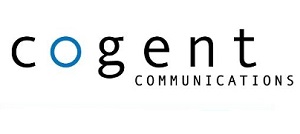Cogent CEO: We’ll Pay For Peering Upgrades
The smarter way to stay on top of the multichannel video marketplace. Sign up below.
You are now subscribed
Your newsletter sign-up was successful

Dave Schaeffer, CEO of Cogent Communications, the Internet transit company that’s been in the middle of the Netflix paid peering scuttlebutt in recent weeks, announced Friday an offer to pay for ISP peering upgrades.
Cogent said it’s making the offer “to resolve the impasse between Cogent and major telephone and cable companies (Verizon, Comcast, AT&T, and Time Warner Cable) over upgrading the connections necessary to exchange Internet traffic, including streaming video traffic like Netflix, by paying the capital cost required for these companies to upgrade the connections (as well as Cogent's own costs) to ensure adequate capacity to deliver quality service to the customers of Cogent and these ISPs that have refused to upgrade traffic exchange capacity.”
The offer comes in the wake of an interconnection deal between Netflix and Comcast aimed at improving the quality of Netflix streams delivered to the MSO’s broadband customers. On Thursday, Netflix CEO Reed Hastings posted a blog expressing that Netflix reluctantly agreed to the paid peering agreement and expects it’ll have to do the same with other major ISPs. Taking it a step further, Hastings, like Level 3 Communications, is now trying to link interconnection deals to the network neutrality debate as new FCC Chairman Tom Wheeler looks to restore Open Internet rules that were mostly vacated by a D.C. appeals court in January.
In comments to the FCC, Cogent said it believes the Commission should seek to classify broadband as a Title II common carrier service.
That positioning comes as Cogent, one of Netflix’s primary Internet transit providers, continues to argue that ISPs are allowing their peering points to degrade and are refusing to upgrade them without “imposing tolls on traffic required by their customers and delivered by other Internet service providers.”
Many ISPs, citing the inequality of traffic being sent upstream versus what’s being sent downstream, have sought commercial interconnection deals in place of existing settlement-free arrangements. Many of them also believe that they are business matters, and should not be linked to the network neutrality debate.
Cogent has some obvious business incentives behind the offer. In the case of the Netflix-Comcast deal, some transit dollars that used to go to Cogent, will now go to Comcast.
The smarter way to stay on top of the multichannel video marketplace. Sign up below.
Cogent, the exec said, believes in a model whereby each side bears the costs of interconnection upgrades, but argued that “the reality of the gatekeeper power exercised by these telephone and cable companies requires that Cogent accept these additional costs in order to provide the highest quality Internet service possible.”
Schaeffer stressed that Cogent isn’t offering to enter paid peering arrangements with the ISPs, but will instead be “simply willing, at this time, to incur the capital costs associated with augmenting its interconnections with these networks to address the current level of traffic congestion.”
He didn’t express precisely how much Cogent would be willing to set aside for the offer, which, if any ISPs were to take him up on it, would likely involve more ports. Multichannel News has sought comment from AT&T, Comcast, TWC, and Verizon about Schaeffer’s proposition.
